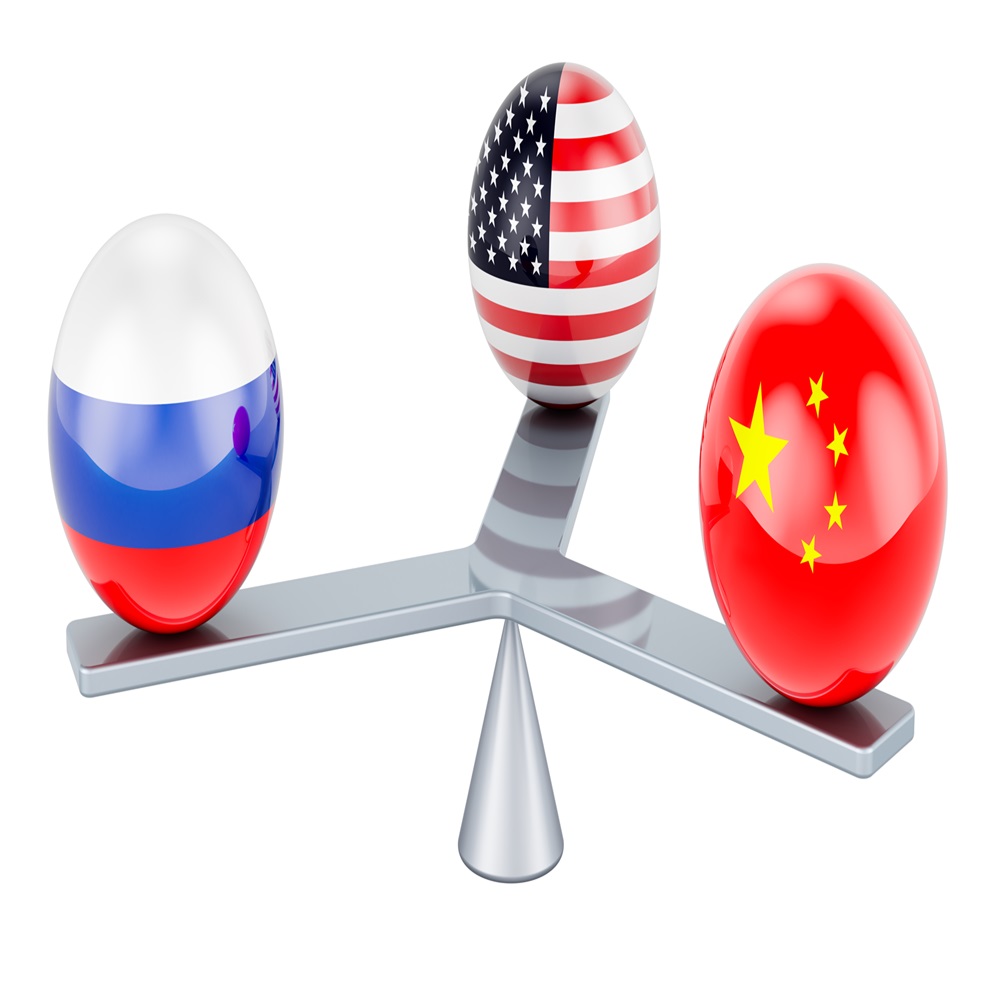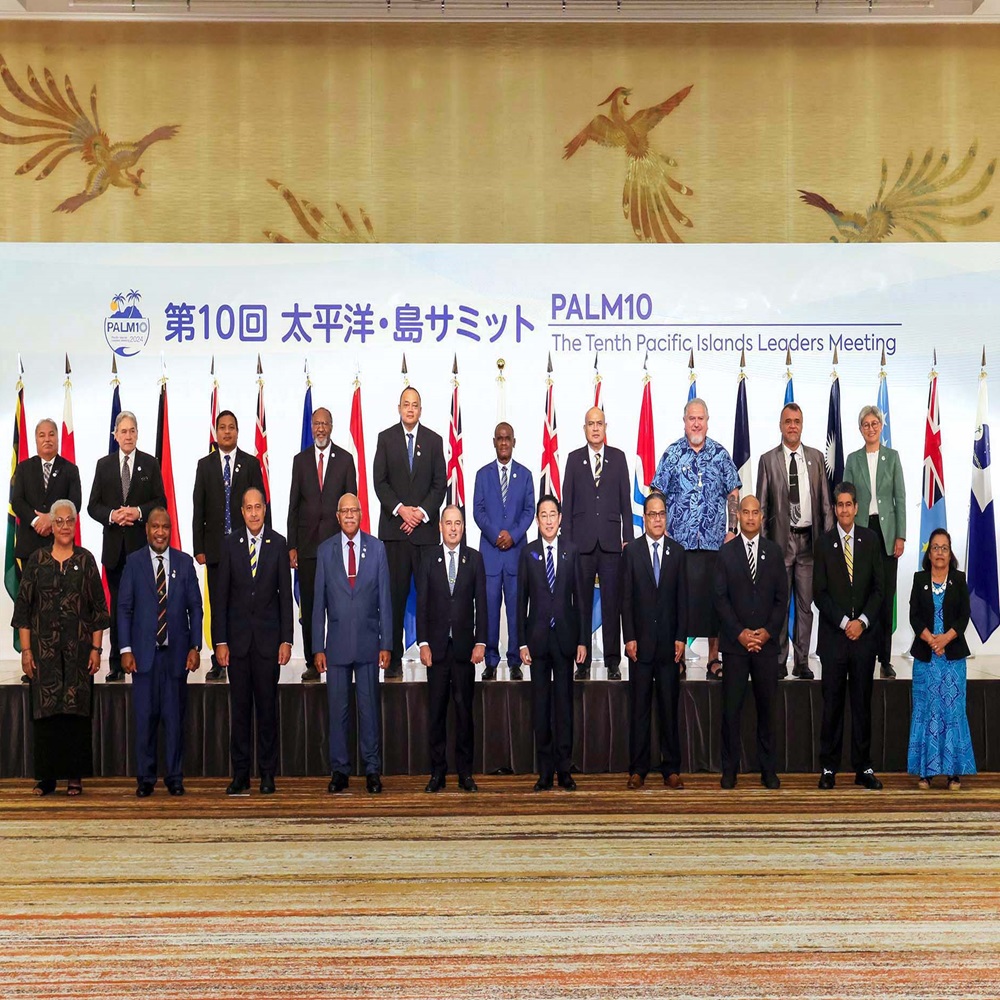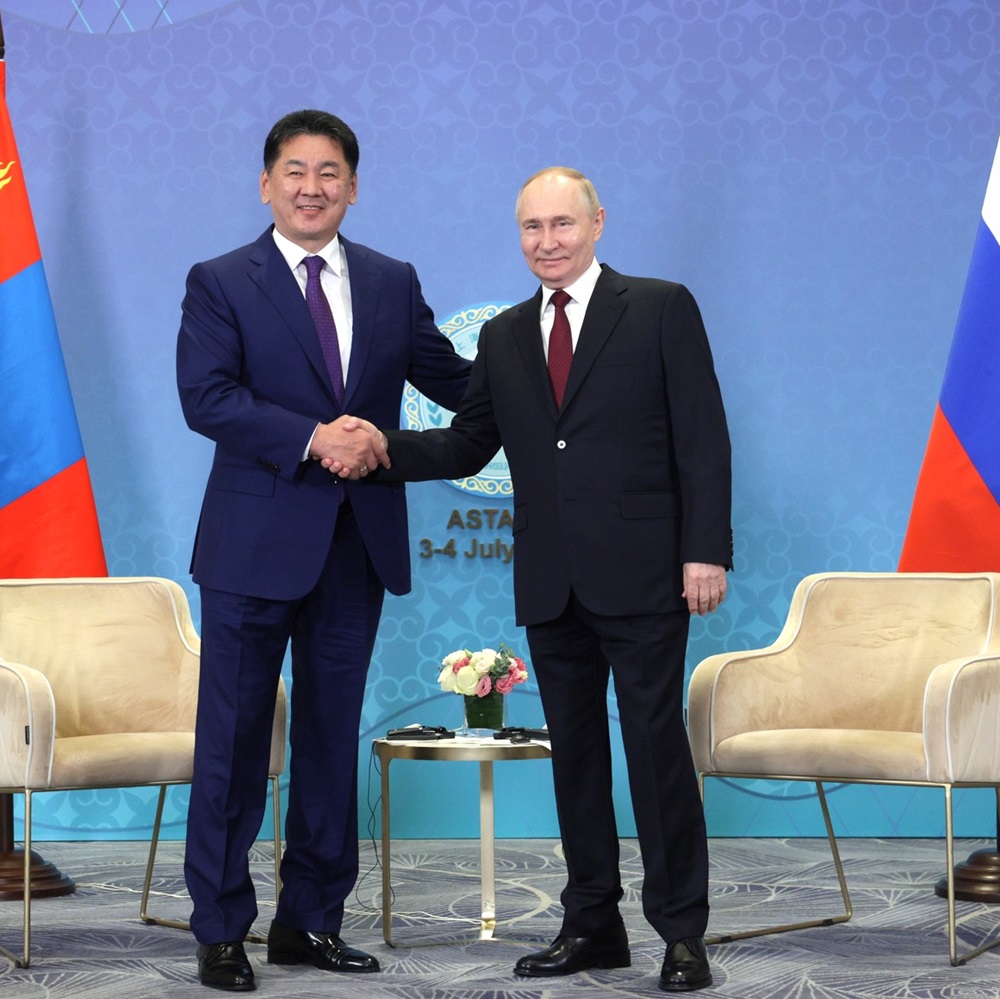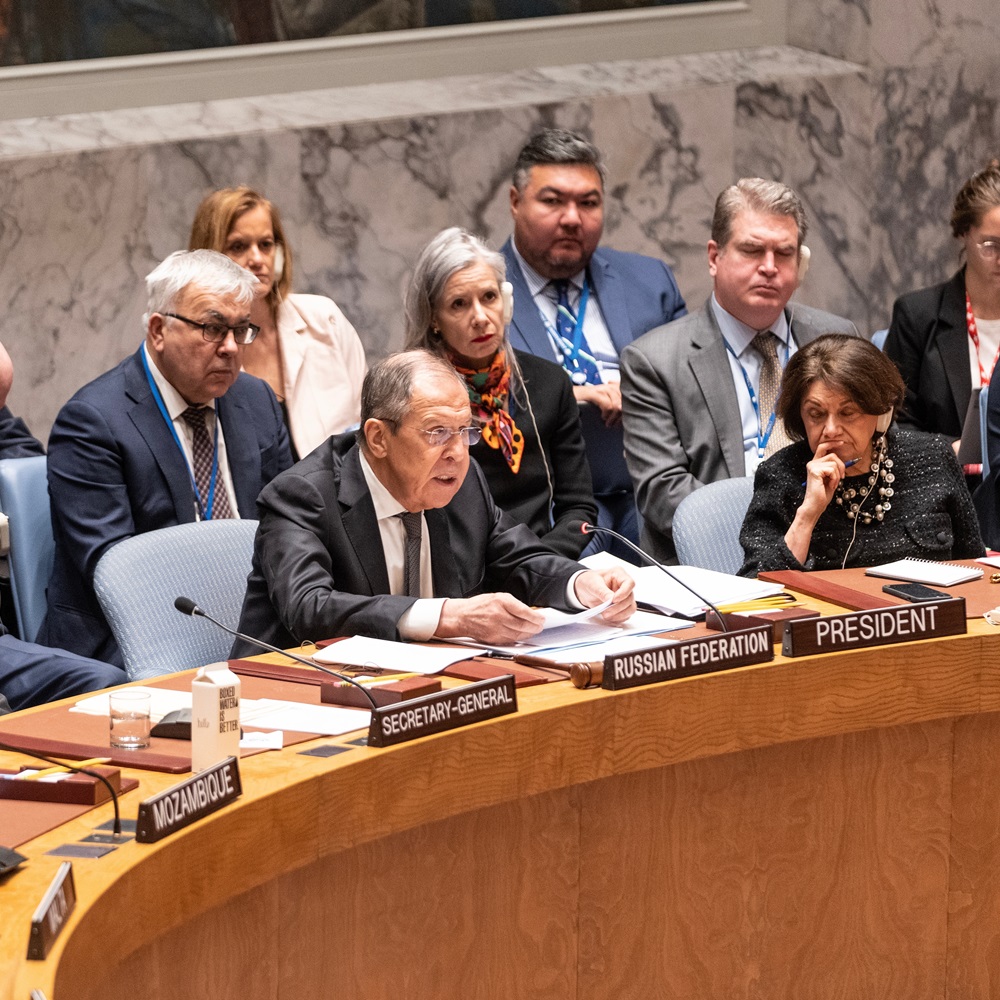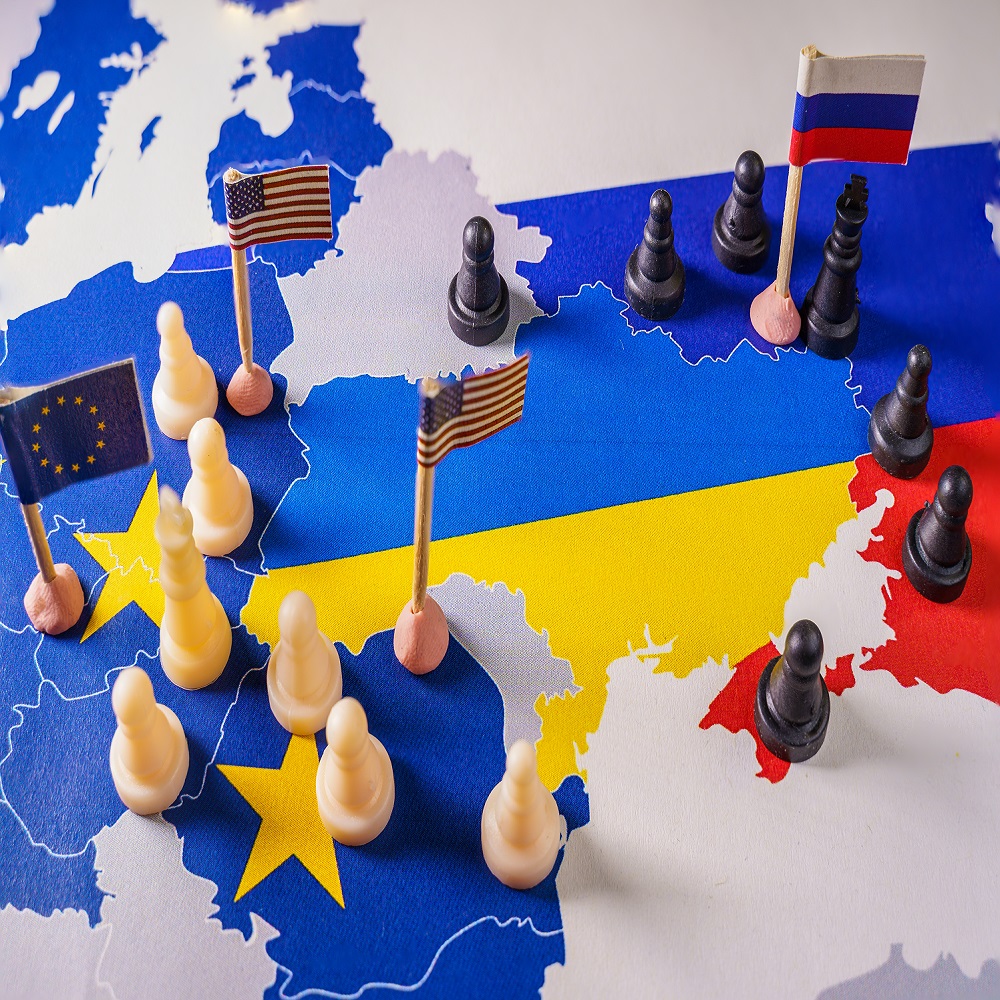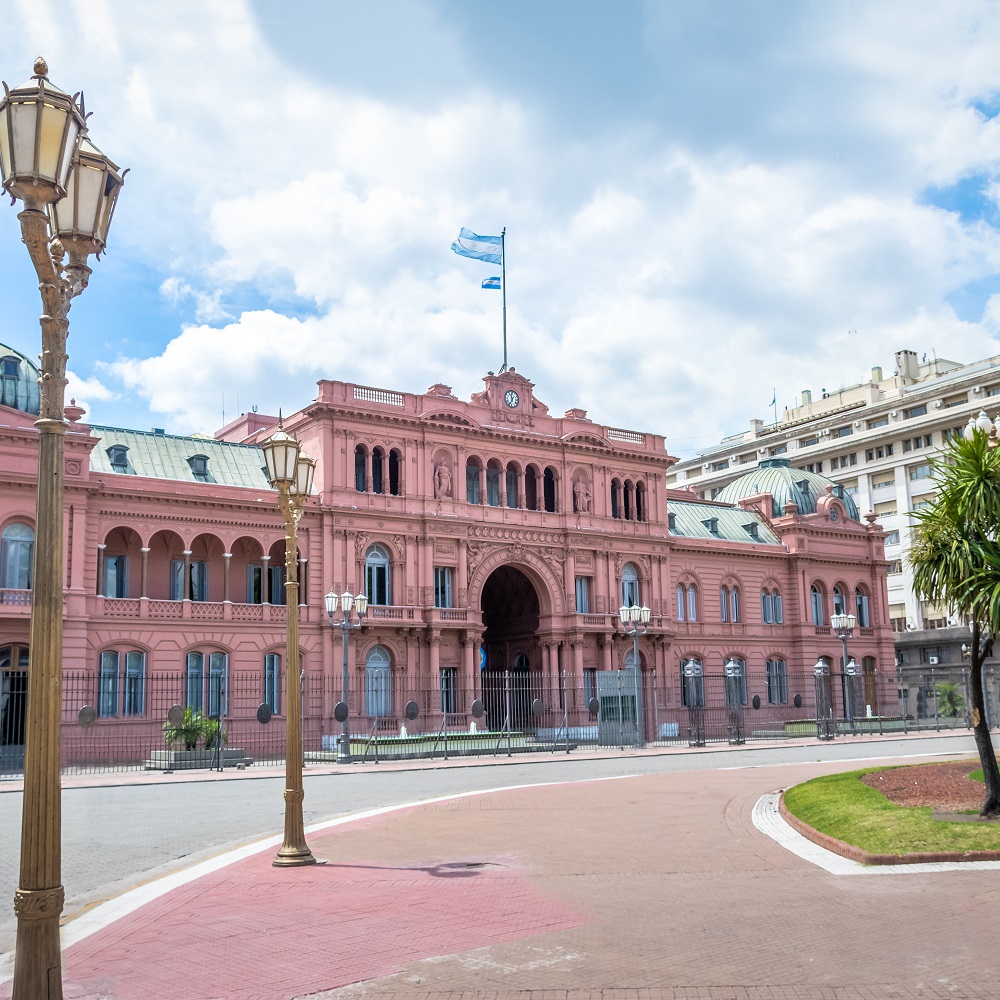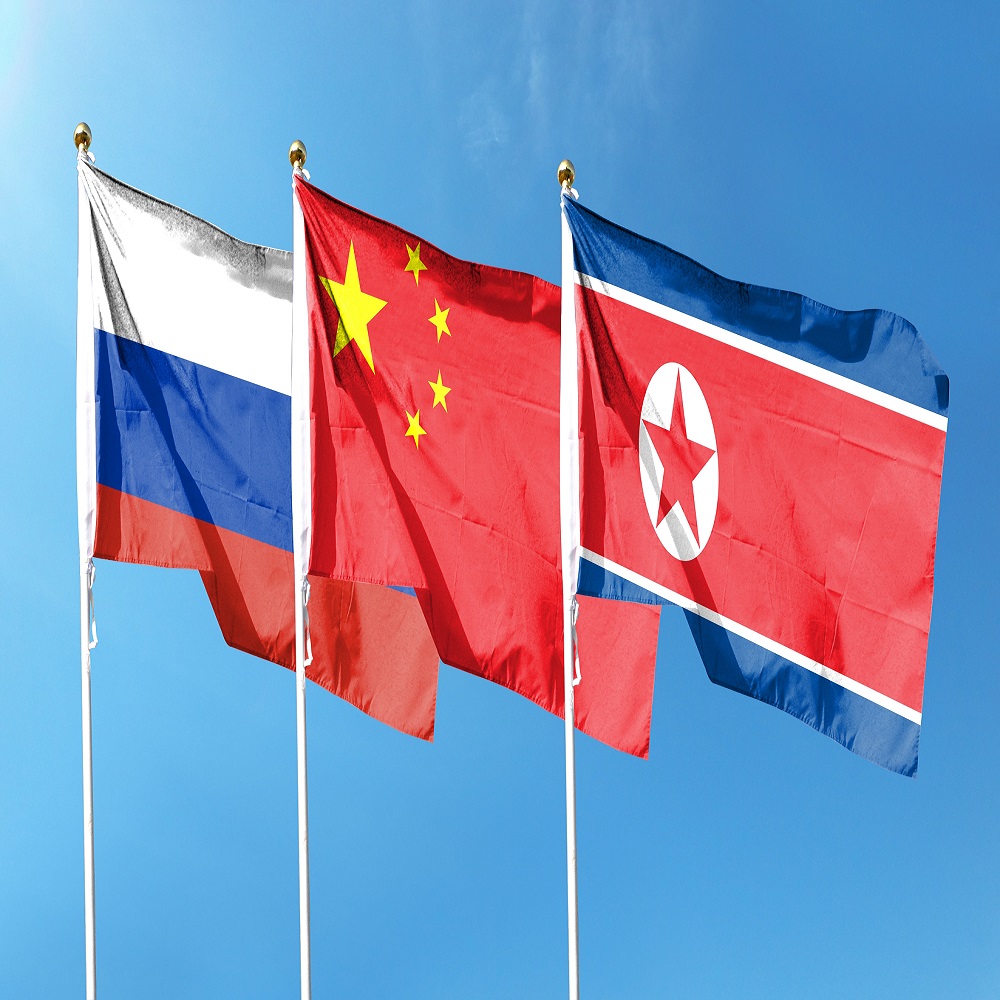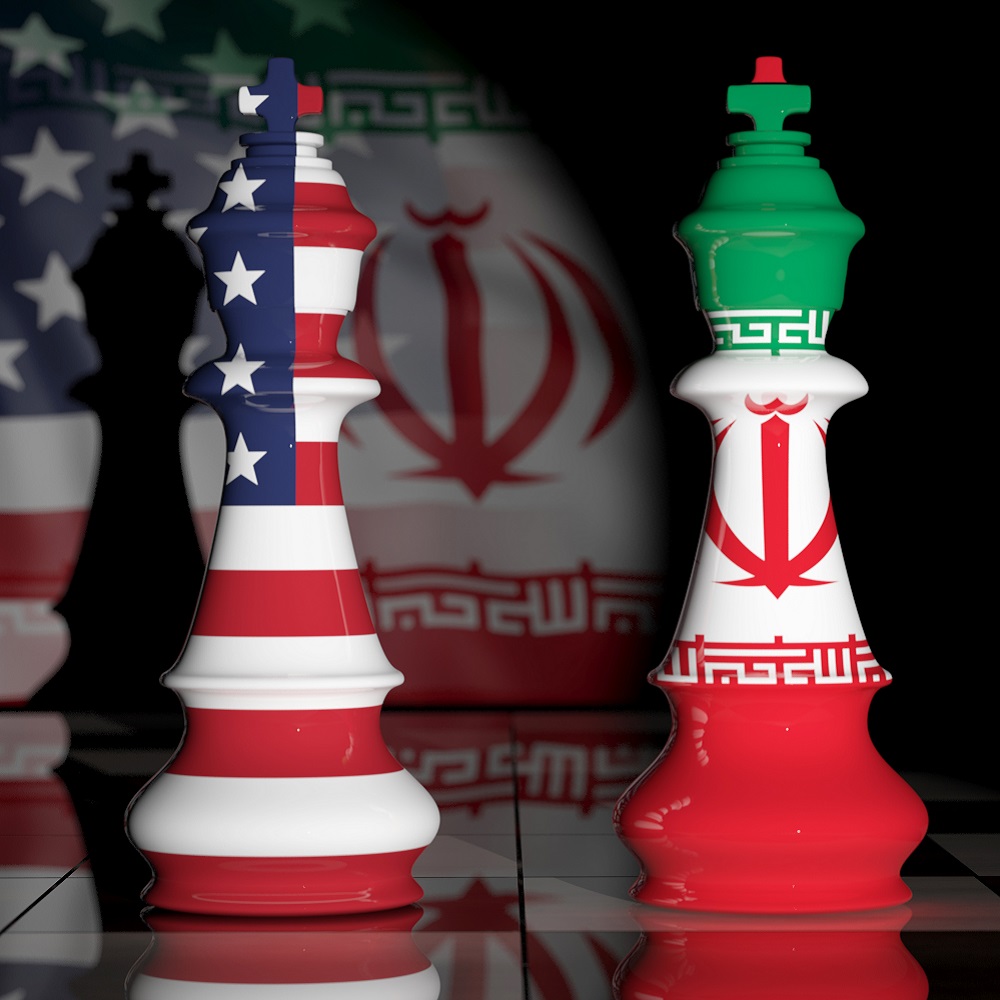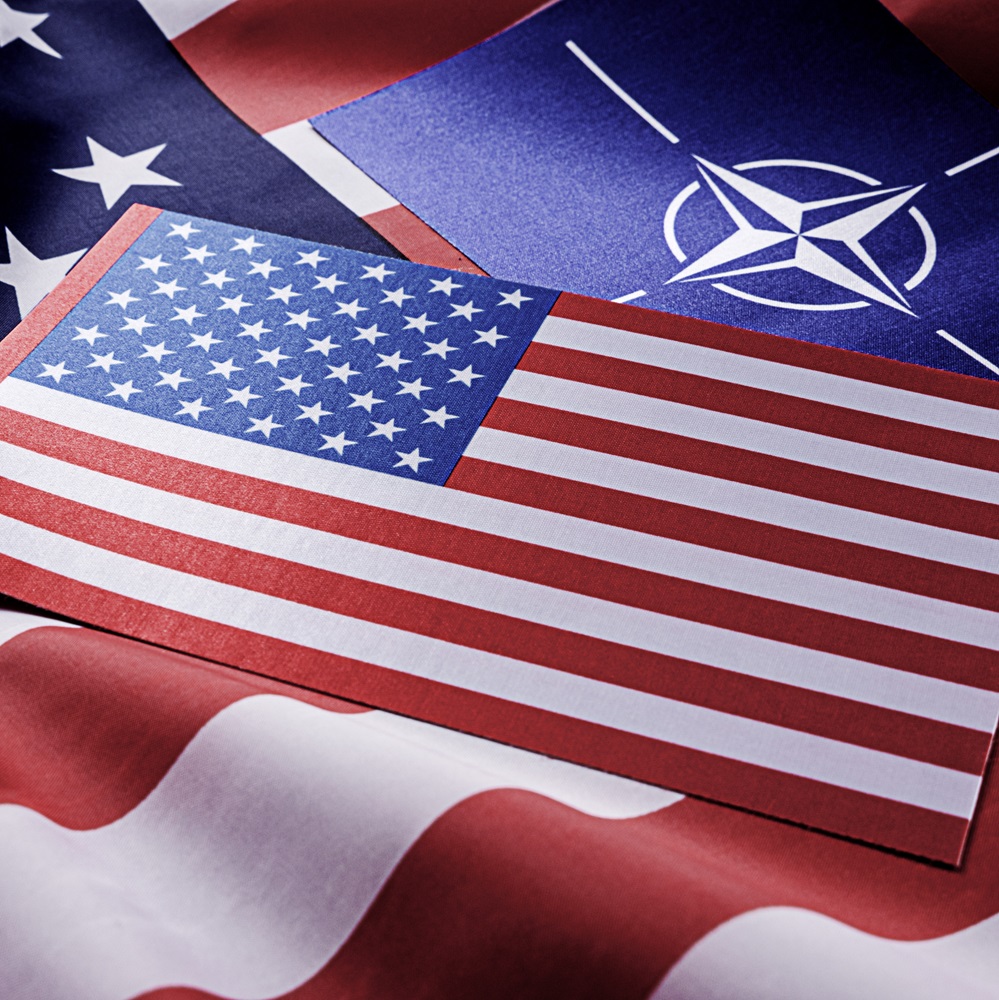
The future of NATO after the US elections
by Evelyn Gaiser, Konrad Adenauer Foundation , Max Willem Fricke, Konrad Adenauer Foundation
한국어로 읽기 Leer en español In Deutsch lesen Gap اقرأ بالعربية Lire en français Читать на русском More European responsibility for a sustainable transatlantic relationship ' US geopolitical priorities will continue to shift to the Indo-Pacific region in the coming years, despite the warlike events in Europe. ' Regardless of the outcome of the US elections, it can be assumed that US defense resources will be withdrawn from Europe to the Indo-Pacific. ' Russia is already waging a hybrid war against NATO members in the form of sabotage, espionage, cyber-attacks, and disinformation. Militarily, Russia is threatening the European NATO partners. Europe must function as a credible deterrent against this threat. ' In view of the Russian war of aggression in Ukraine and possible further Russian expansionist ambitions, it is in Europe's own interest to be prepared for a possible partial withdrawal of US troops. ' The US is still the backbone of NATO's defense capabilities in areas such as reconnaissance and deterrence. European countries must contribute significantly more to their defense capability to complement US support and take over parts of it in the medium term. ' By collaborating with partners in the Indo-Pacific, Germany and other European NATO members promote interoperability and competence and signal to the US a willingness to contribute to security beyond the defense of the European Alliance area. ' Whoever rules from the White House after January 20, 2025, must consider the signal the US will send to China if support for Ukraine and engagement in NATO is scaled back. If Russia's war of aggression is successful, China will take note and draw its own conclusions. Introduction The US election campaign is being followed with great interest by security experts and transatlanticists in Europe. This is because the outcome of the election on November 5 will have a major impact on the future of NATO - and thus the most successful defense alliance of all time. This Monitor analyzes what an election victory by Donald Trump on the one hand and an election victory by Kamala Harris on the other could mean for the transatlantic alliance and how the European NATO partners must position themselves to keep transatlantic relations on a sustainable footing. The geopolitical priorities of the USA will continue to shift towards the Indo-Pacific region in the coming years, despite the warlike events in Europe. For decision-makers in Germany and other European NATO states, this means that there is an urgent need to consistently develop their defense policy and take responsibility for security policy. This is the only way to ensure peace and freedom in the European NATO states in the future. A decisive strengthening of European defense capabilities should be the key to shaping a sustainable and future-proof transatlantic partnership. Concerns about a second term for Donald Trump: Trumpproofing NATO There is concern in many European capitals that a second term in office for Donald Trump could have a decisive impact on the stability of transatlantic relations and NATO.1 The buzzword “Trumpproofing NATO” is therefore being used on both sides of the Atlantic to prepare for a possible second Trump administration. There are plenty of reasons for this. Trump has openly threatened to reduce the US troop presence in Europe, restrict intelligence sharing with NATO allies, cut a deal with Russia over Ukraine's head and revoke NATO's Article 5 security guarantee for those who do not contribute sufficiently.2 Take him seriously, not literally! Trump's unpredictability is part of his political strategy. And so, Europe should prepare for various scenarios. The recommendation made by Republican MPs to their transatlantic partners at the recent NATO summit in Washington appears to be quite groundbreaking: Trump is not to be taken literally, but he should certainly be taken seriously.3 European decision-makers should also look at existing security policy ideas from Trump's environment, as he could - without a security policy strategy of his own - use these as a guide. “Dormant-NATO” - possible withdrawal of large parts of US troops The concepts of conservative security policy pioneers such as Elbridge Colby4, Sumantra Maitra5 and Dan Caldwell6 are well-known. Colby was the architect of the national security strategy under Trump in 2018 and is considered a candidate for a top security policy post in a possible Trump II administration.7 Caldwell is Vice President and Maitra is a Senior Fellow at the influential Trump-affiliated think tank “Center for Renewing America”. The aforementioned experts advocate an increase in defense spending by European NATO members far above the 2014 target of two percent of gross domestic product.8 Furthermore, they call not only for increased burden-sharing, but also for burden-shifting within NATO.9 So far, Western Europe has acted as a free rider and exploited the US involvement in NATO (“freeriding”) - an insight that has long been shared by Republicans and Democrats, albeit in different tones.10 However, the Republicans go further: in view of rising debts, problems with recruiting soldiers and a defense industry that cannot keep up with the challenge posed by Russia and China, the US can no longer avoid a realignment of NATO.11 Maitra's “Dormant NATO” concept suggests that the USA should only be active in Europe with a limited naval and air force presence in future and would only operate in acute threat situations and in extreme emergencies with nuclear deterrence.12 The majority of the infantry, armored forces, logistics and artillery previously provided by the USA should therefore be provided by the Europeans.13 According to Maitra, the costly US leadership role in NATO is no longer in the interests of the United States, as Russia no longer poses an immediate threat to the US.14 Europe is therefore called upon to take over the conventional defense of its own continent, which is also justified by the fact that the US must focus its security policy resources on the Indo-Pacific and the protection of Taiwan. About Ukraine, Trump is considering a deal with Russia if he wins the election. The content of such a deal could be the end of NATO's eastward expansion and the rejection of NATO membership for Ukraine and Georgia. Trump could also negotiate with Russian President Vladimir Putin over Moscow's Ukrainian territorial claims - over the heads of Ukraine.15 JD Vance - Isolationist approaches of a vice-presidential candidate Donald Trump's vice-presidential candidate JD Vance also criticizes NATO and calls for US resources to be prioritized in Asia, particularly to deter a possible Chinese attack on Taiwan. However, his position on Ukraine stands out in particular: he is completely opposed to US military aid for Ukraine.16 Vance believes that Ukraine cannot win the war against Russia in purely numerical terms and is in favor of negotiations with Russia.17 Another accent of the vice presidential candidate is his clear criticism of the rules-based world order. With him as Vice President, a break with the traditional foreign policy of the United States could become more likely.18 However, Vance has also shown himself to be very changeable in terms of his opinions and convictions, which is why he - like Trump - is difficult to assess overall. Despite the ambiguities and versatility that Trump and his foreign and security policy makers stand for, they are united by a tendency towards isolationism and criticism of NATO. Although a withdrawal from NATO is unlikely, Trump could drastically reduce the US role in the European security architecture. A Trump II scenario could pose further dangers for Ukraine in particular. Continuity under Kamala Harris? While the transatlantic agenda of a Democratic presidential candidate Biden was considered predictable, the nomination of Kamala Harris has brought a new dynamic to the debate about the future of transatlantic relations in case of a Democratic victory. Against this backdrop, it makes sense to look at the defense policy approaches that a Kamala Harris presidency could entail. Would Kamala Harris mean continuity in transatlantic relations? Would Harris be a transatlanticist? Kamala Harris gained important insights into foreign and security policy not only as Vice President, where she was present in the Oval Office or Situation Room for all important foreign policy decisions,19 but also as a Senator on the Home-land Security and Intelligence Committees. This applies to the investigation into Russian influence on the 2016 US elections in the Intelligence Committee, which is also likely to have shaped her view of Vladimir Putin.20 Kamala Harris is regarded as an advocate of transatlantic cooperation. As Vice President, Harris took part in Ukraine peace conference in Switzerland in the summer, met with Ukrainian President Volodymyr Zelensky six times and attended the Munich Security Conference three times. There she reaffirmed the USA's unwavering commitment to NATO and Article 5 of the North Atlantic Treaty.21,22 Her previous statements during the election campaign - particularly at the Democratic Party conference - also indicate that her foreign policy approach will continue to be in line with Joe Biden's NATO policy. Harris emphasized the importance of alliances, her commitment to NATO and her support for Ukraine against the Russian occupation. In the TV duel against Donald Trump, she described NATO as “the greatest military alliance the world has ever known ”23 and announced that she would continue to support Ukraine if she won the election. However, she left open whether she would supply Ukraine with added weapons or authorize the use of American weapons against targets on Russian soil.24 Her current security advisor, Phil Gordon, a proven expert and friend of Europe, is also being touted as a candidate for a high-ranking position in a possible Harris administration.25 There are therefore initial indications that the transatlantic alliance would continue to play an important role in foreign and security policy under Kamala Harris. Tim Walz: Foreign policy profile Harris' candidate for Vice President, Tim Walz, does not yet have a clear foreign policy profile. However, as a long-standing and high-ranking representative of the National Guard, he has ability in military matters. In the past, he has spoken out against military operations in Iraq, Syria and Yemen.26 He also joined Republican politicians in 2016 who spoke out against cuts to the military, as it needs to be well funded in order to meet the challenges in the world.27 The China expert spoke out against Trump's trade arms race with China, but also denounced human rights violations. Walz clearly condemned the Russian war of aggression, signed a law as governor of Minnesota that ended the state's investments in Russia28 and expressed his support for Ukraine29. However, many of his foreign policy positions are unlikely to be completed and will depend on which advisors he chooses to surround himself with. Generational change in the White House Despite Kamala Harris' fundamental support for NATO, her inauguration would mark a generational change in the White House. While President Joe Biden, who was born three years before the end of the Second World War, was significantly socialized politically by the Cold War, Harris began her political career a good twenty years after the fall of the Berlin Wall and does not share the same historical ties to Europe. At the same time, Harris must respond to changing domestic and geopolitical realities. The United States is still the global superpower with a claim to military leadership. However, NATO has recently lost support in public opinion in the USA and the willingness to fund European defense is dwindling.30 Support for Ukraine is also viewed increasingly critically.31 There is also a consensus in broad circles of the Democratic Party that Europe must take more responsibility for its own defense. The economic policy agenda now announced by Harris in the election campaign would be enormously costly.32 This makes a significant increase in defense spending unlikely. The public, politicians and experts33 now perceive China as by far the greatest threat to the security and prosperity of the United States, and Harris is also concerned about China's quest for global political power. Harris has already announced at the party congress that she will ensure that America wins the competition for the 21st century against China.34 In view of increasing tensions in the Indo-Pacific, the transfer of additional military resources, particularly air force and navy, from Europe to the Indo-Pacific region will be unavoidable in the medium term. About NATO, the difference between a Harris and a Trump-led administration is likely to lie in the scope and speed of the withdrawal of US defense resources from Europe. While a withdrawal under Trump could be implemented quickly, an election victory for Harris is more likely to mean a gradual withdrawal and would give the Europeans time to position themselves better in terms of defense policy.35 NATO is still the most important instrument for European defense cooperation. Against the backdrop of the volatile security environment and the shift in priorities in the USA, Europeans must take on more responsibility for the defense of their own continent. This is the only way to ensure that NATO is still a successful defense alliance in the future. However, this debate should not be about Donald Trump or Kamala Harris, but about improving military capabilities to deter and defend against attacks on alliance territory. In view of the Russian war of aggression in Ukraine and possible further Russian expansionist ambitions, it is in Europe's own interest to be prepared for a possible partial withdrawal of US troops. This can only take place in close coordination with the USA and within NATO structures. Europe's security still depends on the USA. Because even if the European pillar of NATO is placed on a more stable footing, European security can only be guaranteed with American support for the near future. The USA is indispensable in NATO. The partners lean on its capabilities and are guided by developments. The US defense budget accounts for around two thirds of defense spending within NATO. There are currently around 85,000 soldiers stationed in Europe.36 This means that US defense spending is almost ten times higher than that of Germany, which has the second highest defense budget in NATO. A substantial proportion of US defense spending currently goes towards protecting European NATO members.37 At the same time, nine NATO countries, including Canada, Spain, and Italy, still spend less than two percent of their GDP on defense. Most of the so-called "strategic enablers", such as reconnaissance, aerial refueling and satellite communications, are currently provided by the USA, whose forces, in contrast to most European armies, are quickly deployable, combat-ready and equipped with sufficient stocks of ammunition.38 Despite all the debates that are taking place in this regard, the nuclear umbrella is likely to remain Europe's life insurance in the future. "New" threat situation requires a rethink. Russian President Vladimir Putin's speech at the Munich Security Conference39 in 2007 was followed by action: Russia's invasion of Georgia in 2008, its illegal annexation of Crimea and the start of the protracted conflict in the Donbass in 2014, its withdrawal from the arms control and security architecture and finally its invasion of Ukraine in 2022.40 The assumption is that, in the event of military success in Ukraine, Putin will declare further territorial claims and take military action. Security experts warn that Russia could press ahead with its imperial expansionism in just a few years and be capable of waging war against a NATO country.41 Russia is already waging a hybrid war against NATO members in the form of sabotage, cyber-attacks and disinformation.42 However, Russia is not the only threat to European security. From the Sahel to the Middle East, there are numerous complex challenges: Terrorism, ongoing conflicts and fueled instability on the southern flank have a negative impact on Europe. The resulting migration movements also have destabilizing effects. Military exercises with Chinese participation in Belarus and cyber-attacks on European NATO partners are also signs of China's growing claim to power in Europe. The ever-closer cooperation between China, Russia, Iran, and North Korea is a challenge for NATO. Decisive strengthening of the European security architecture for a sustainable transatlantic relationship For NATO to support a sustainable foundation, the European and German security architecture must be better secured and coordinated in the future. In the long term, defense spending in Europe should be increased beyond the envisaged two percent of gross domestic product and permanently integrated into national budgets. Resilience means creating resilience, deterrence, and defense capability. In the case of Germany, the threat situation and the resulting security policy requirements do not yet appear to be sufficiently anchored in political awareness. A consistent rethink is needed here. More efficient organization of defence structures and military procurement is needed. At present, the Bundeswehr is only partially capable of defending the country and the alliance, also in view of the gaps that have arisen due to the transfer of weapons and ammunition to Ukraine. A study by the Kiel Institute for the World Economy found that at the current rate of procurement, Germany would need up to almost 100 years to reach the military stocks of 20 years ago.43 Although the turnaround in Germany has been proclaimed, it has not been sufficiently driven forward politically and has not been set up sustainably in terms of financial policy - beyond the special fund. A consistent implementation of the turnaround for a defensible Germany would inevitably require painful savings elsewhere. This must be considered in the domestic political discourse to prepare the public for future necessities. This also includes the debate on compulsory military service and the creation of a new security culture in society. This will only be possible if the threat situation and, conversely, the need for a turnaround are communicated in all their urgency and consistency. In the German arms industry, ability building and close cooperation and coordination with European partners are of crucial importance.44 Promises made to NATO partners must be backed up financially, in terms of personnel, structure and material. While Russia has switched to a war economy, Europe is finding it difficult to significantly increase production. This also requires a stabilization of defence spending. To build up sustainable abilities, the industry needs planning security. And the budget, which provides for hardly any growth in defense spending, does not offer this.45 It is precisely this planning security that would enable the defense industry to create new jobs in the long term and thus take on employees who currently have less of a future in the weakening automotive industry, for example. The (not yet officially published) draft for the new National Security and Defense Industry Strategy, which aims, among other things, to ease access to loans and capital market-based financing for the security and defense industry (SVI), sends a positive signal. The draft states that the “SVI activities are fundamentally compatible with ESG criteria” (Environmental, Social and Corporate Governance) from the perspective of the federal government.46 Strengthening joint commitment in the Indo-Pacific It is not only the USA that has recognized the danger of China's desired supremacy in the Indo-Pacific. European NATO members also see increasing challenges in Asia and have an interest in supporting a rules-based order and free sea and trade routes in the Indo-Pacific, which is of crucial importance not least for an export nation like Germany. European NATO states, including Germany, are becoming increasingly involved in the Indo-Pacific region.47 At the anniversary summit in Washington in July, NATO toughened its tone towards China and clearly stated the danger posed by the ever closer cooperation between Russia, China, Iran and North Korea.48 At the same time, cooperation with the so-called Asia-Pacific 4, the NATO partner states Australia, Japan, New Zealand and South Korea in the Indo-Pacific, is becoming closer. This cooperation must be further strengthened, for which the partner countries Australia49 and Japan50 or the multinational maneuver RIMPAC51 are particularly suitable. By cooperating with like-minded partners in the Indo-Pacific and participating in multinational exercises and freedom-of-navigation operations (FONOPs), Germany and other European NATO members not only defend their interests and promote interoperability and competence, but also signal to their partner, the USA, their willingness to get involved beyond the defense of the European alliance territory and make a contribution to transatlantic security.52 NATO is not a one-way street: clearly communicating added value for the USA. Without the leadership of the United States, NATO will not be able to continue its success story. For this reason, it is crucial to convince the American side and to highlight the strategic interest of the US in preserving this treaty-based peace order and stability in Europe.53 In doing so, the European NATO partners should not only effectively communicate their defense policy progress, but also increasingly provide up-to-date data and figures on the benefits of NATO engagement for the US. The evidence shows that US security engagement has significant positive effects on US trade. According to calculations, trade losses that could result from a US withdrawal from international security commitments in the medium and long term would exceed the potential savings in defense resources.54 European partner states are also making significant purchases of military equipment in the US, as illustrated by the example of the F35 fighter aircraft, for which numerous European states have concluded purchase agreements.55 Since the Russian war of aggression against Ukraine, European demand for US military equipment has risen sharply and in 2023 the US Department of Defense recorded record sales of military equipment and hardware, particularly to European partners and allies.56 NATO's deterrent effect has been instrumental in preventing armed conflict in member countries since its start. The stability that the alliance guarantees therefore also relieves the strain on American resources. Whoever takes office in the White House on January 20, 2025, must consider the signal the US will send to China if support for Ukraine and involvement in NATO are scaled back. If Russia's war of aggression is successful, China will take note and draw its own conclusions. A vacuum in Europe would not only be used by Russia, but also by China to expand its presence and influence on the continent. A US withdrawal from NATO in favor of a stronger focus on its strategic rival China could therefore ultimately play right into the latter's hands. References 1 https://www.kas.de/de/web/auslandsinformationen/artikel/detail/-/content/tun-wir-genug (last request 15.08.2024) 2 https://www.csis.org/analysis/beyond-trump-proofing-natos-real-adversaries (last request 15.08.2024) 3 https://www.washingtonpost.com/national-security/2024/07/11/trump-nato-republicans-con-gress/ (last request 15.08.2024) 4 https://foreignpolicy.com/2024/07/31/elbridge-colby-trump-foreign-policy-military-china/ (last request 16.08.2024) 5 https://americarenewing.com/team/sumantra-maitra/ (last request 20.08.2024) 6 https://www.foreignaffairs.com/united-states/foreign-policy-republican-american-power (last request 02.09.2024) 7 https://www.politico.eu/article/former-president-donald-trump-ally-europe-joe-biden-us-elec-tions-pentagon/ (last request 16.08.2024) 8 https://www.politico.eu/article/trump-ally-warns-eastern-europe-to-rapidly-increase-defense-budgets/ (last request 21.08.2024) 9 https://ip-quarterly.com/en/nato-thrive-europe-needs-wake (last request 29.08.2024) 10 https://americarenewing.com/policy-brief-pivoting-the-us-away-from-europe-to-a-dormant-nato/ (last request 15.08.2024) 11 https://www.politico.com/news/magazine/2024/07/02/nato-second-trump-term-00164517 (last request 15.08.2024) 12 https://americarenewing.com/policy-brief-pivoting-the-us-away-from-europe-to-a-dormant-nato/ (last request 15.08.2024) 13 https://www.politico.com/news/magazine/2024/07/02/nato-second-trump-term-00164517 (last request 02.09.2024) 14 https://americarenewing.com/policy-brief-pivoting-the-us-away-from-europe-to-a-dormant-nato/ (last request 15.08.2024) 15 https://www.politico.com/news/magazine/2024/07/02/nato-second-trump-term-00164517 (last request 02.09.2024) 16 https://foreignpolicy.com/2024/07/18/j-d-vance-trump-foreign-policy-china-ukraine-vice-presi-dent-pick/ (last request 15.08.2024) 17 https://www.cfr.org/blog/meet-jd-vance-republican-vice-presidential-candidate (last request 29.08.2024) 18 https://www.cfr.org/blog/meet-jd-vance-republican-vice-presidential-candidate (last request 29.08.2024) 19 https://english.elpais.com/usa/elections/2024-09-02/kamala-harriss-foreign-policy-continuity-in-substance-a-new-style-in-form-and-the-hot-potato-of-gaza.html# (last request 02.09.2024) 20 Vgl. https://www.npr.org/2024/07/24/nx-s1-5049698/a-perspective-on-kamala-harris-poten-tial-foreign-policy-priorities (last request 08.08.2024)21 Vgl. https://de.usembassy.gov/de/rede-von-us-vizepraesidentin-kamala-harris-auf-der-muenchner-sicherheitskonferenz-2023/ (last request 08.08.2024) 22 Der Artikel 5 zum Bündnisfall der NATO sieht vor, dass im Falle eines bewaffneten Angriffs gegen ein Mitgliedsland, die anderen Mitgliedsstaaten dem angegriffenen Land Beistand leisten. Vgl. Nordatlantikvertrag: https://www.nato.int/cps/en/natohq/official_texts_17120.htm?selec-tedLocale=de (last request 08.08.2024) 23 https://www.youtube.com/live/SGRydccYp0c?si=L4RBnZ0pBsF_JGmm (last request 12.09.2024) 24 https://thehill.com/opinion/international/4874527-the-debate-failed-on-foreign-policy/ (last request 12.09.2024) 25 Vgl. https://www.politico.eu/article/philip-gordon-us-politics-kamala-harris-us-elections-eu-rope-joe-biden-emmanuel-macron/ (last request 08.08.2024) 26 https://foreignpolicy.com/2024/08/07/harris-walz-us-election-progressive-foreign-policy-war-israel-gaza-ukraine/ (last request 09.08.2024) 27 https://fpc.org.uk/us-presidential-election-what-would-a-harris-walz-foreign-policy-look-like/ (last request 02.09.2024) 28 https://www.cbsnews.com/minnesota/news/gov-walz-signs-bill-ending-state-investments-in-russia/ (last request 02.09.2024) 29 https://www.politico.com/news/2024/08/06/tim-walz-vp-harris-veterans-00172782 (letzter Ab-ruf 14.08.2024) 30 https://www.pewresearch.org/global/2024/05/08/americans-opinions-of-nato/ (last request 12.09.2024) 31 https://www.bbc.com/news/world-us-canada-67649497 (last request 09.08.2024) 32 https://www.washingtonpost.com/business/2024/08/16/kamala-harris-2024-policy-child-tax-credit/ (last request 19.08.2024) 33 https://www.c-span.org/video/?c5038077/pacing-challenge (last request 30.08.2024) 34 https://www.ft.com/content/5d50d474-dc4d-4504-8002-7a81874153a8 (last request 03.09.2024) 35 https://www.foreignaffairs.com/united-states/natos-missing-pillar (last request 21.08.2024) 36 https://www.bbc.com/news/world-44717074 (last request 09.08.2024) 37 https://www.politico.com/news/magazine/2024/07/02/nato-second-trump-term-00164517 (last request 03.09.2024) 38 https://ip-quarterly.com/en/nato-thrive-europe-needs-wake (last request 30.08.2024) 39 http://news.bbc.co.uk/2/hi/europe/6350847.stm (last request 04.09.2024) 40 https://ecfr.eu/publication/defending-europe-with-less-america/?amp (last request 03.09.2024)41 https://www.tagesspiegel.de/politik/wir-mussen-raketenabwehr-aufbauen-bundeswehr-sieht-russland-in-funf-bis-acht-jahren-zu-krieg-gegen-nato-fahig-11406908.html (last request 15.08.2024) 42 https://www.csis.org/analysis/beyond-trump-proofing-natos-real-adversaries (last request 15.08.2024) 43 https://www.ifw-kiel.de/de/publikationen/aktuelles/kriegstuechtig-in-jahrzehnten-deutsch-land-ruestet-viel-zu-langsam-gegen-russische-bedrohung-auf/ (last request 18.09.2024) 44 https://www.kas.de/de/web/auslandsinformationen/artikel/detail/-/content/tun-wir-genug (last request 15.08.2024) 45 https://www.dbwv.de/aktuelle-themen/verband-aktuell/beitrag/wuestner-sich-die-augen-zu-halten-reicht-nicht (last request 15.08.2024) 46 https://table.media/wp-content/uploads/2024/08/12162241/Entwurf_Strategie-Staerkung-SVI.pdf (last request 12.09.2024) 47 https://www.bundeswehr.de/en/organization/german-air-force/pacific-skies-24- (last request 05.09.2024) 48 Vgl. https://www.linkedin.com/pulse/nato-jubil%C3%A4umsgipfel-2024-mehr-verantwortung-zemle/ (last request 08.08.2024) 49 https://www.kas.de/de/web/auslandsinformationen/artikel/detail/-/content/fernbeziehung (last request 04.09.2024) 50 https://www.kas.de/de/web/auslandsinformationen/artikel/detail/-/content/die-zusammenar-beit-zwischen-japan-und-der-nato (last request 04.09.2024) 51 https://www.cpf.navy.mil/RIMPAC/ (last request 05.09.2024) 52 https://www.atlanticcouncil.org/content-series/memo-to/nato-leaders-indo-pacific/ (last request 05.09.2024) 53 https://youtu.be/2_djNsTnJcI (last request 14.08.2024) 54 https://www.rand.org/pubs/research_reports/RR518.html (last request 04.09.2024) 55 https://euro-sd.com/2024/07/articles/39541/f-35-in-europe-a-takeover/ (last request 04.09.2024) 56 https://www.defense.gov/News/News-Stories/Article/Article/3736017/dod-has-seen-huge-in-crease-in-military-sales-since-ukraine-invasion/ (last request 04.09.2024)









